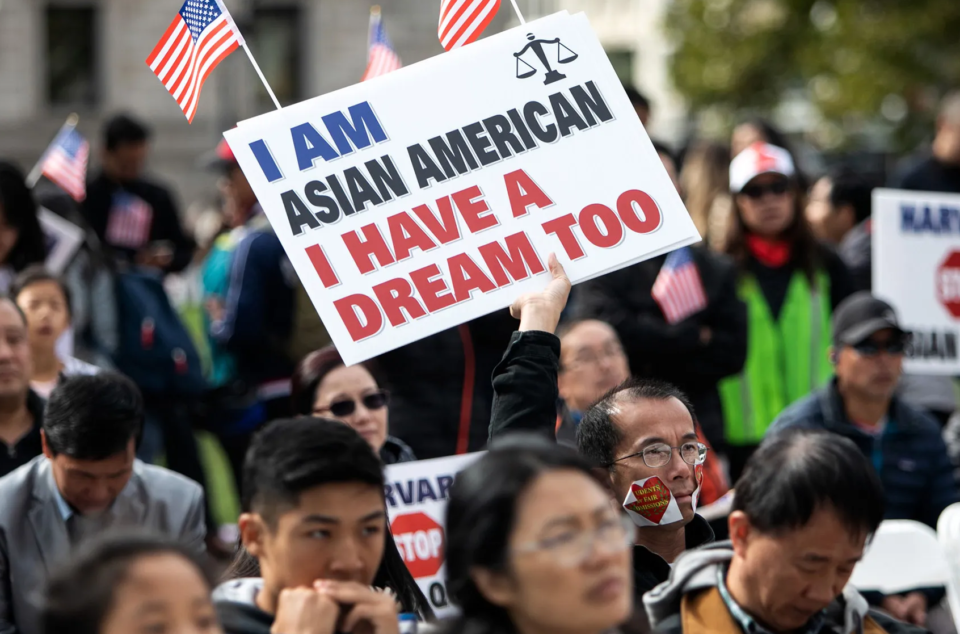The policy disproportionately harms Asian Americans by assigning higher point values to first generation, low-income students.
Earlier this month, the University of California, San Diego (UCSD) quietly made a contentious change to its selective major change policy which effectively changes how students will be prioritized for limited enrollment programs. Set to impact highly competitive fields like computer science, this policy introduces a point system which gives preference to first generation, low-income students currently residing in California. In effect, it backdoors affirmative action and the race-conscious admissions practices gutted by the Supreme Court’s landmark decision in Students for Fair Admissions v. Harvard last year.
Under this new system, a 3.0+ GPA student whose parent is college-educated and/or makes over $45,000 will be given lower standing than a student with worse grades but whose family fits the correct demographic profile. UCSD claims the policy is “aligned with UC San Diego’s priorities of serving California residents, first-generation college students, and students from low-income families.”
This policy disproportionately disadvantages Asian American students who, according to research by the Pew Research Center, tend to come from more highly educated and affluent families. For instance, around 61% of Asian Americans have a bachelor’s degree or higher while the national average remains at 37.9%. Similarly, the household median income for Asian Americans is currently $101,418—43% greater than the national median income of $70,784.
Dr. Melvin Leok, a professor of Mathematics at UCSD, has voiced concerns about the policy and whether or not UCSD has support systems necessary for students who are admitted based on the new criteria rather than academic merit.
“I raised serious concerns about this policy in undergraduate council” said Leok. “I think they did not even do the minimal due diligence to see if it would result in a slew of potential unintended consequences, and whether it would actually result in positive career outcomes for the groups this policy is clearly intended to help.”
Leok sits on an administration-senate committee that deals with “the problem of under-preparation in mathematics in incoming students, associated with the removal of the SAT as part of the admissions process.” This has resulted in over 600 students per year needing access to “significant remediation before they are ready to take the MATH 10/20 calculus sequence.”
“I asked for the outcomes for students who were in these majors with poor GPA’s at the end of their first or second year and whether they completed the major in a reasonable time, and what the career outcomes were,” said Leok. “I was told that it would take too much analyst time to run those numbers, to which I said that it is unconscionable to run this pilot without doing that analysis.”
Aside from effectively constituting racial discrimination, the policy also contributes to the lowering of academic standards and has the potential to foster resentment among students and student groups who feel unfairly disadvantaged. All of this in turn reduces the value of the degree and damages UCSD’s reputation.
UCSD boasts that “nearly 40 percent of UC San Diego’s undergraduate student body [identify] as first-generation,” meaning that any individual student who does not fit the criteria outlined in the new policy will likely find it virtually impossible to enroll in computer science or other selective majors.
“That’s so obviously a racial preference program disguised as an economic one,” said one X user, the website formerly known as Twitter in a discussion thread about the policy change. “[It] will also discourage people from a specific race from even applying to the school.”
“And it will produce subpar results,” said another.
This controversial policy has indeed opened a can of worms regarding educational equity versus meritocracy. With UCSD taking such a radical approach, the conversation around affirmative action, especially in the realm of public education, has been reignited.
One may argue that the intent behind the policy is noble. But in execution, if the repercussions undermine the very principles of fairness and equal opportunity at UCSD seeks to promote, it is no better than a thousand other thinly veiled attempts at bringing back the racist affirmative action policies that the Roberts Court struck down in 2023.
“Eliminating racial discrimination means eliminating all of it,” read the majority opinion in that case. “For the guarantee of equal protection cannot mean one thing when applied to one individual and something else when applied to a person of another color.”


